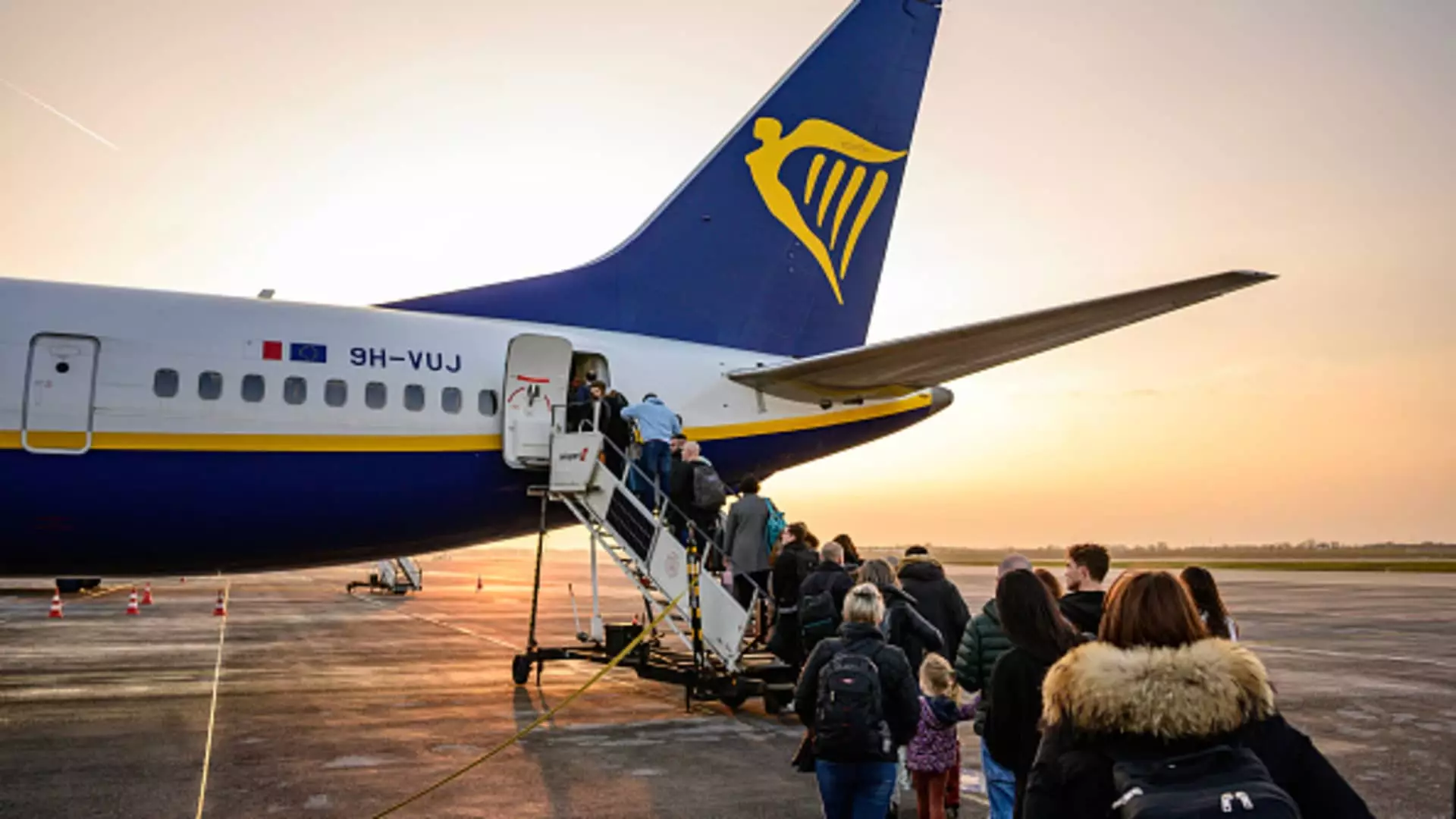Ryanair, Europe’s leading low-cost airline, has demonstrated resilience in its financial performance despite facing ongoing challenges. The airline reported an after-tax profit of 149 million euros ($155.8 million) for the fiscal third quarter ending in December, surpassing analysts’ predictions by a significant margin. The anticipated profit was only around 60 million euros, indicating that Ryanair not only managed to weather the storm resulting from external pressures but has also capitalized on the holiday travel season. This profit increase was propelled by a surge in customer bookings during the Christmas and New Year period, highlighting the airline’s ability to adapt and find opportunities even in a tumultuous environment.
Despite the promising quarterly results, Ryanair significantly revised its passenger traffic projections for the fiscal year ending March 2026, reducing the forecast from a previous estimate of 215 million passengers to just 206 million. This cut is primarily attributed to ongoing delays in aircraft deliveries from Boeing, which have plagued the airline’s growth plans. The constraints on new aircraft deliveries mean Ryanair cannot meet its ambitious growth targets, revealing the extent to which reliance on manufacturers can impact airline operations. The company observed a 9% year-on-year increase in passenger traffic, reaching 45 million, showcasing resilience, but the overall outlook remains cautious due to these Boeing-related disruptions.
Ryanair’s Chief Financial Officer, Neil Sorahan, expressed an optimistic view regarding future travel demand, believing that bookings are robust into the upcoming summer months. He noted the strong inclination for leisure travel, which tends to peak during the summer, giving Ryanair a potential cushion against the backdrop of its downgraded traffic goals. Sorahan’s visit to Boeing’s production facilities provided him with insights into improvements in the supply chain, instilling confidence that the remaining aircraft needed for Ryanair’s fleet would be delivered as expected. This kind of proactive engagement with suppliers is essential for airlines as it allows them to anticipate issues and align expectations accordingly.
While Ryanair has reported strong financials, the downward revision of passenger targets could introduce volatility in the airline’s stock price, as per analysts from Citi. The airline industry is notorious for its susceptibility to geopolitical events, which could further influence market conditions. Factors such as ongoing conflicts in Ukraine and the Middle East, combined with unpredictable delivery schedules from Boeing, create layers of uncertainty that could potentially inhibit future growth for not just Ryanair but the entire aviation market. The airline’s cautious guidance on after-tax profit for the fiscal year, estimated between 1.55 billion euros and 1.61 billion euros, reflects a prudent approach given these unpredictable variables.
The Broader Impact of Manufacturing Issues
The challenges faced by Ryanair are indicative of a broader issue affecting the aviation industry, where reliance on a single aircraft manufacturer can lead to operational disruption. The delays from Boeing not only impact Ryanair but resonate through the entire market, where other airlines are also grappling with similar obstacles, leading to an collective industry-wide challenge. As many airlines are attempting to rebuild following the pandemic, the slow recovery of aircraft supply chains poses significant hurdles, which can lead to increased operational costs and adjusted service capabilities.
While Ryanair celebrates strong quarterly profits and a growing passenger base, the revisions in traffic expectations and the looming uncertainties signify a complicated landscape. The airline’s proactive measures to engage with suppliers and its adaptable business strategies will be vital in navigating the unpredictable elements of the aviation industry. As Ryanair continues to forge ahead, both the airline and its stakeholders must remain vigilant of external pressures while striving to harness the robust demand for air travel in the face of operational constraints. The coming months will reveal whether Ryanair can maintain its trajectory towards recovery and growth in such a fluid market environment.

